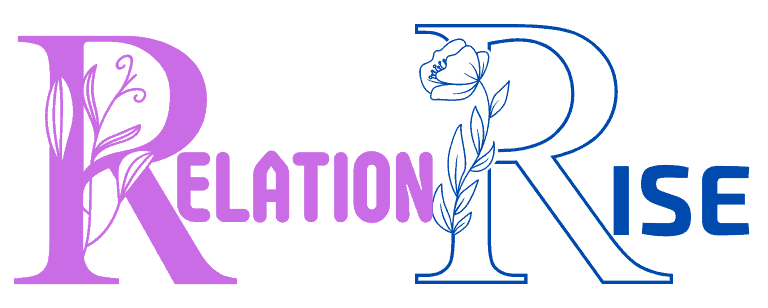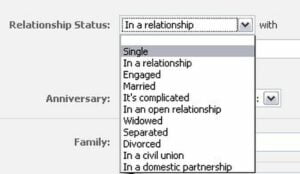What Does Label Mean in a Relationship
In a relationship, the label refers to the title or status that defines the partners’ connection. It signifies the level of commitment and exclusivity between the two individuals.
Understanding the significance of labels in a relationship is crucial for clarifying expectations and defining the parameters of the partnership. This aspect can impact how partners introduce each other in social settings, communicate with friends and family, and navigate future plans together.
The label influences the dynamics of the relationship, providing a sense of security and stability for both individuals. Moreover, it can influence the level of emotional investment and the commitment to building a long-lasting connection. Therefore, comprehending the implications of labeling in a relationship is essential for fostering a healthy and transparent bond between partners.
Defining Relationship Labels
Understanding relationship labels is crucial in defining the nature and expectations of a romantic partnership. The decision to label a relationship can deeply impact the dynamic and understanding between two individuals. In this section, we’ll discuss the significance of determining relationship labels, what they entail, and why they matter.
What Are Relationship Labels?
In relationships, labels refer to the terms used to describe the nature and commitment level between partners. These labels can range from casual dating and exclusive dating to boyfriend/girlfriend, partners, or spouses. Each label signifies a different level of commitment, expectations, and understanding within the relationship.
Importance Of Labels In Relationships
Clarity in labels is indispensable as it lays the foundation for understanding expectations, boundaries, and the direction of the relationship. A mutually agreed-upon label can provide a sense of security and commitment, prompting open communication about the future and commitment level. Moreover, it enables both partners to align their desires and expectations, preventing misunderstandings and conflicts in the long run.
Psychological Impact Of Labels
Understanding the psychological impact of labels in a relationship is crucial for recognizing the significance of defining one’s status with a partner. The need for labels in a relationship goes beyond just a mere categorization, as it profoundly influences the emotional landscape of individuals involved. Let’s delve into the psychological impact of labels in relationships and how they contribute to emotional well-being and security.
The Need For Labels
Humans have an innate need to categorize and label their relationships – it provides a sense of organization and clarity. The use of labels helps individuals define the nature of their relationship, providing a framework for understanding and expectations. When partners agree to assign a label to their relationship, it establishes a mutual understanding and acknowledgment of their commitment, creating a foundation for shared goals and expectations.
Labels And Emotional Security
Labels in a relationship serve as a means of providing emotional security to both partners. Having a clearly defined label – “boyfriend,” “girlfriend,” “spouse,” or any other designation – conveys a sense of belonging and commitment, fostering a deepened emotional connection. By knowing where they stand in the relationship, individuals feel more secure and are better equipped to invest emotionally and mentally in their partnership, leading to increased satisfaction and stability.
Communication And Expectations
If you are in a relationship, you may find yourself navigating the often ambiguous and complex territory of labels. This can involve determining the nature of your connection, the roles you play, and the expectations you have of each other. Labeling your relationship, or not, can have a significant impact on your communication and the expectations you hold. In this blog post, we’re delving into the vital aspects of communication and expectations when it comes to relationship labels.
Communicating About Labels
Communication is fundamental when it comes to defining the label of a relationship. It is essential for both partners to openly discuss their feelings and intentions, and what the label means to each of them. This entails a deep and honest conversation where both individuals can express their desires, concerns, and boundaries. When communicating about labels, it’s crucial to ensure that both parties are on the same page. Setting aside a specific time to have this discussion can provide a structured and comfortable environment for both individuals to express their thoughts. When approached with openness and honesty, these discussions can lead to a better understanding of the relationship and where it is headed.
Expectation Versus Reality In Labeled Relationships
When it comes to relationships, there can often be a dissonance between what we expect from a labeled relationship and the reality of the situation. Society often places certain expectations on labeled relationships, which can lead to pressure and disappointment when these standards are not met. It’s important to distinguish between what society deems as the “norm” and the actual dynamics of the relationship. Expectations should be based on the individual needs, boundaries, and mutual agreements within the relationship, rather than external influences.
Labels And Social Relationships
When it comes to social relationships, labels play a significant role in defining the nature and status of those relationships. The labels we give to our relationships can be influenced by societal norms, cultural contexts, and individual preferences. In this post, we’ll explore how societal influences affect relationship labels and how labeling can vary across different cultural contexts.
Societal Influence On Relationship Labels
In our society, relationship labels are often influenced by traditional norms and expectations. Cultural and social constructs dictate the acceptable forms of relationships and the labels associated with them. For example, marriage is a widely recognized label for a committed romantic relationship, which signifies not only the legal union but also social acceptance and validation of the partnership. Furthermore, societal pressures can also dictate the timing and appropriateness of using specific relationship labels. Couples may feel compelled to conform to societal expectations when it comes to labeling their relationships, even if their personal feelings or commitments differ.
Labeling In Different Cultural Contexts
Relationship labeling can vary significantly across different cultural contexts. In some cultures, there may be a greater emphasis on family approval and collective considerations when it comes to relationship labels. The terminology used for relationships can hold profound cultural and social significance, reflecting the values and norms of a particular community. For instance, in some cultures, relationships may be labeled based on a hierarchical structure, such as elder-younger sibling dynamics, which may not directly translate into the Western understanding of relationship labels. Understanding and respecting these cultural variations is essential to avoid misinterpretation and misrepresentation of relationship labels across diverse social settings.
The Evolution Of Relationship Labels
Relationship labels have undergone significant changes throughout history, reflecting the evolving attitudes and values of society. Understanding these shifts can provide insights into the complexities of modern relationships.
How Labels Have Evolved Over Time
The concept of relationship labels has transformed over centuries. In traditional societies, relationships were often defined by societal norms and family dynamics. The emphasis was on specific roles and responsibilities within the union, with little regard for personal preferences or emotional fulfillment.
As societies progressed and individuals gained more autonomy, relationship labels began to shift towards recognizing the importance of love and emotional connection. The rise of romanticism in the 18th century led to a greater emphasis on romantic love as a significant factor in relationships, giving rise to terms such as “boyfriend” and “girlfriend” to describe non-marital partnerships.
In recent decades, the understanding of relationships has broadened to encompass diverse forms of partnerships, including non-heteronormative relationships and non-monogamous arrangements. This expanded view has brought about the introduction of new labels such as “partner,” “significant other,” and “polyamorous,” reflecting the increasing diversity and inclusivity in modern relationships.
The Future Of Relationship Labeling Trends
As society continues to evolve, relationship labels are anticipated to become even more fluid and inclusive. With greater recognition and acceptance of non-traditional relationship structures, terminology is likely to continue expanding to accommodate diverse identities and dynamics. The rise of digital relationships and long-distance connections may also influence the development of new relationship labels, reflecting the changing nature of human interaction in the digital age.
Frequently Asked Questions On What Does Label Mean In A Relationship
What Is The Significance Of Labeling A Relationship?
Giving a label to a relationship defines its commitment and exclusivity, providing clarity and understanding.
How Can Defining The Label Affect A Relationship?
Setting a label can strengthen trust, enhance communication, and establish mutual expectations for the future.
Are Labels Necessary For A Healthy Relationship?
Labels can provide a sense of security and stability while acknowledging and honoring the commitment between partners.
Can A Label Restrict The Freedom In A Relationship?
Labels should be seen as a form of mutual agreement, enhancing the sense of belonging without restricting personal freedom.
What If Partners Have Different Views On Labeling?
Open and honest communication is vital. Understanding each other’s perspectives and finding a middle ground can be beneficial.
Conclusion
Labels in a relationship can bring clarity and understanding to both partners. It’s important to have open communication and mutual agreement when defining the relationship. Understanding your partner’s perspective is essential for a healthy and strong bond. Remember that labels don’t define the love and commitment shared between two people.



